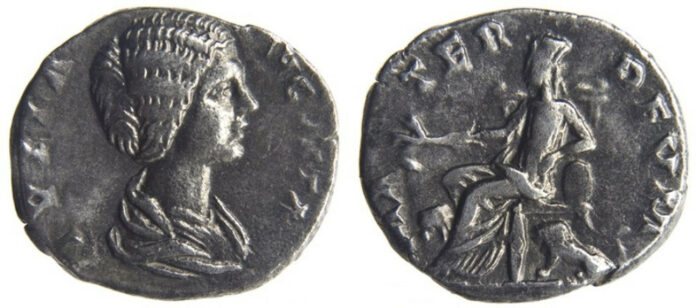Unveiling Ancient Reverence Through Coinage

In the year AD 198, a small silver coin emerged from the Roman mint, carrying with it the weight of an empire’s faith. This denarius, no larger than a modern penny, bore the image of Cybele, the Mater Deum or Mother of the Gods. Little did its creators know that this humble piece of currency would become a window into the religious fervor of an ancient world.
The Great Mother’s Regal Portrait
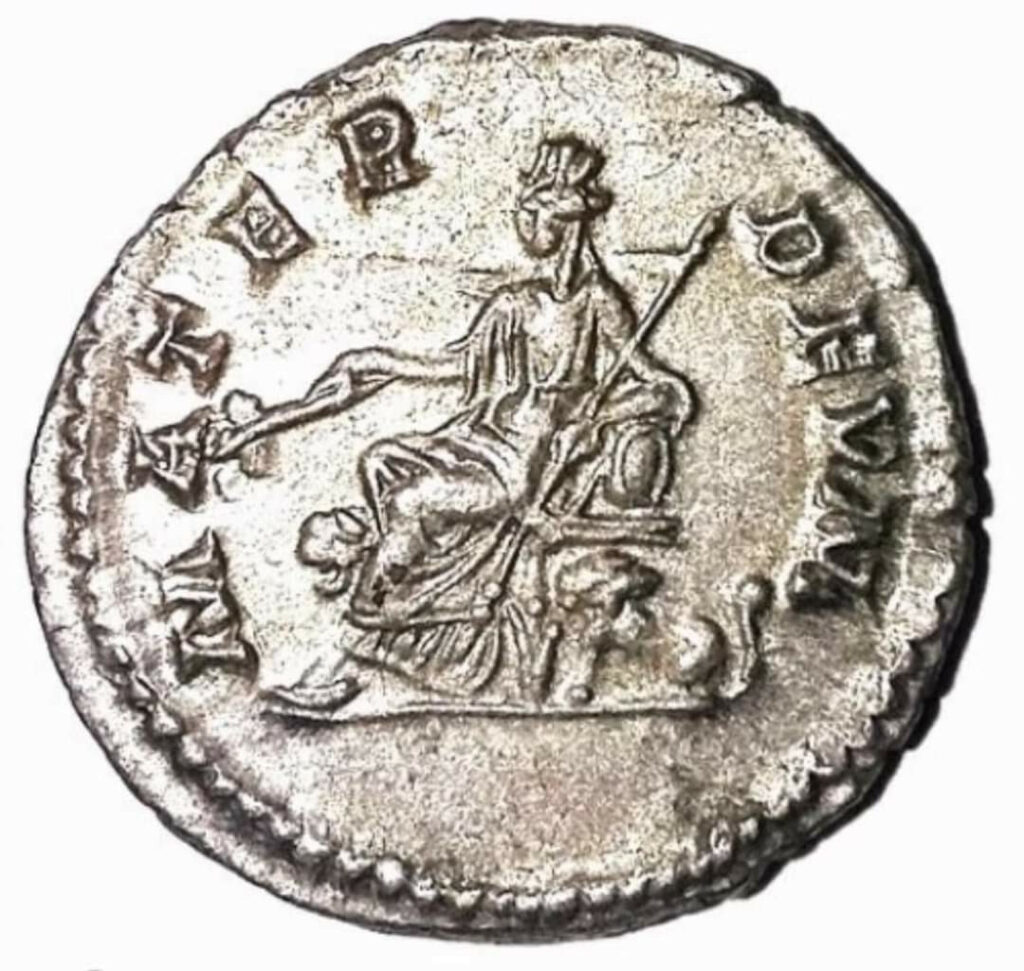
As we examine the coin, Cybele’s majestic form comes to life. Seated on a throne, she exudes power and nurture in equal measure. Two lions flank her sides, fierce guardians of the divine mother. In one hand, she cradles a branch, a symbol of the fertility she bestows upon the earth. In the other, a scepter speaks of her unquestionable authority over gods and mortals alike.
Symbols of Ecstasy and Devotion
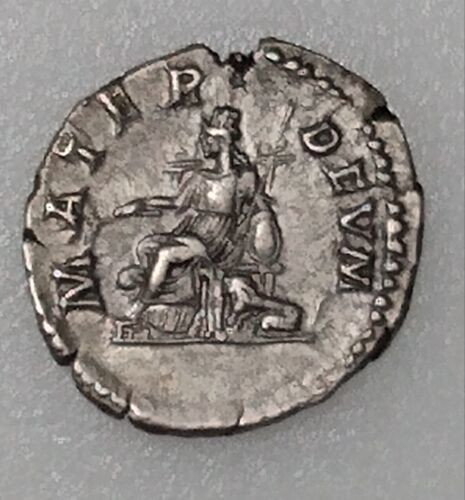
At Cybele’s feet rests a hand drum, known as the tympanum. This seemingly simple instrument holds the key to understanding the passionate worship she inspired. During her festivals, the air would fill with its rhythmic beating, driving her followers into ecstatic frenzies as they celebrated the cycles of life, death, and rebirth.
From Phrygia to Rome: A Goddess’s Journey
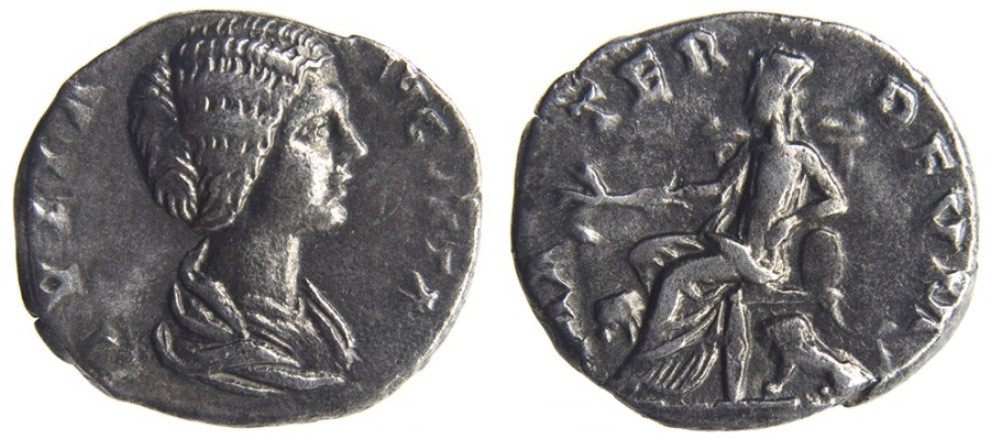
Cybele’s story is one of cultural adaptation and imperial strategy. Originally worshipped in the lands of Phrygia, she found her way to Rome during a time of great peril. As Hannibal’s armies threatened the very existence of the Roman state, the Senate turned to this foreign goddess for divine intervention.
The Palatine’s New Protector
Soon, a temple dedicated to Cybele rose on the prestigious Palatine Hill, cementing her place in the Roman pantheon. Her worship became a blend of public spectacle and mysterious private rites, captivating the imagination of Romans from all walks of life.
A Coin’s Hidden Messages
This denarius was more than just a means of trade. In the hands of Emperor Commodus, it became a powerful propaganda tool. By associating himself with Cybele, he sought to wrap himself in the mantle of divine favor, presenting himself as Rome’s divinely appointed protector.
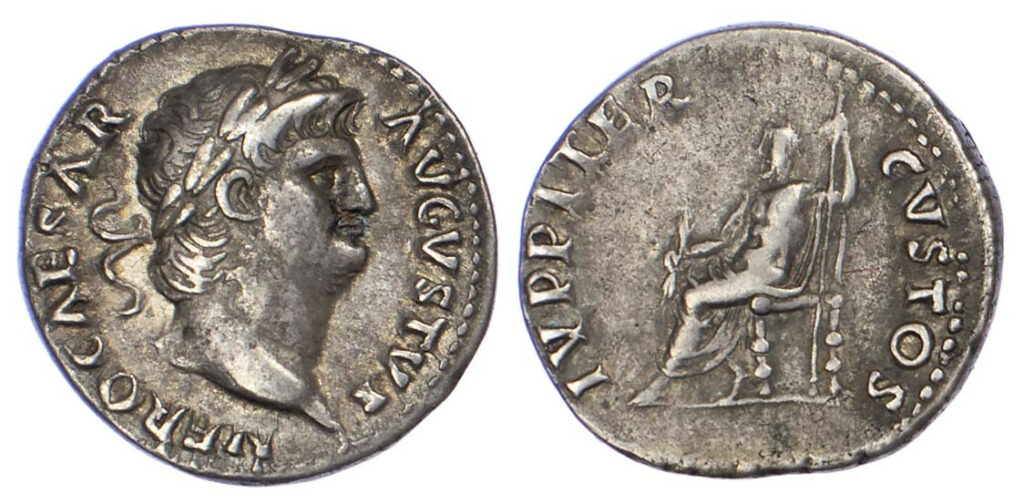
As we hold this ancient coin in our minds, we can almost hear the distant echoes of drums and feel the weight of centuries of devotion. The Mater Deum on this Roman denarius stands as a testament to the enduring power of faith and the complex interplay of religion and politics in the ancient world.
